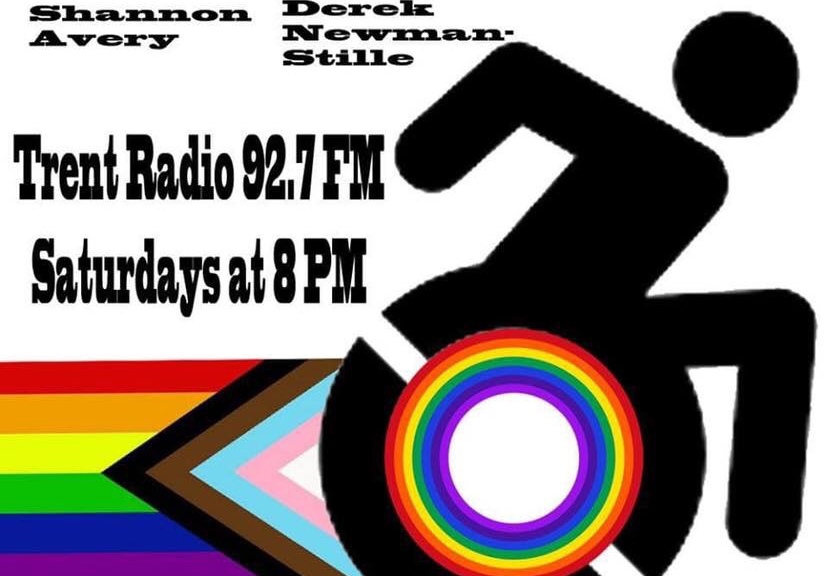Queer Crips on Air Episode 1: Medical Encounters
Shannon Avery and Derek Newman-Stille take to the airways for their first show of Queer Crips on Air on Trent Radio 92.7 FM in Peterborough. We discuss the problematic medical care that is often received by disabled people and queer people (especially the Trans population), drawing on personal experiences and the experiences of others in our community. We raise critical questions about ideas and assumptions behind our care and critique the veil of medical objectivity. We delve into ways that our communities (Queer, Trans, Disabled) come together to share knowledge and experiences to help each other navigate the medical system and to bring each other supports. We discuss the need for critical changes and consultations with our communities by medical practitioners and the need for medical staff to get to know us.
Click on the poster below for our first episode. Make sure to allow time for buffering.

Shannon Avery (They/Them) is anonbinary, Queer, Disabled (Crip) person. They are completing their undergraduate degree at Trent University, where they also work in campus tours and in the Champlain College Office. Shannon is completing their degree in English Literature. They are new to radio and are already fabulous and brilliant at it (this last bit is added by Derek because they are overwhelmed with what an amazing job Shannon is doing on their first show!!!).
Derek Newman-Stille (They/Them) is a Nonbinary (Enby), Queer, Disabled (Crip) person. They are completing their PhD exploring the representation of disability in speculative fiction literature. They teach at Trent University and have just published two anthologies – Over the Rainbow: Folk and Fairy Tales from the Margins (Exile) and We Shall Be Monsters (Renaissance Press).

We are incredibly thankful to Trent Radio for their support and their broadcast services. For people in the Peterborough, Ontario region, you can tune in to Trent Radio at 92.7 FM and for people outside of Peterborough, you can live stream the amazing and brilliant content on Trent Radio at trentradio.ca:8800/hi-fi.m3u . You can find out about Trent Radio at www.trentradio.ca


